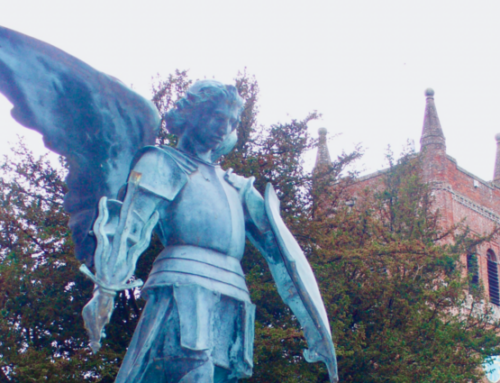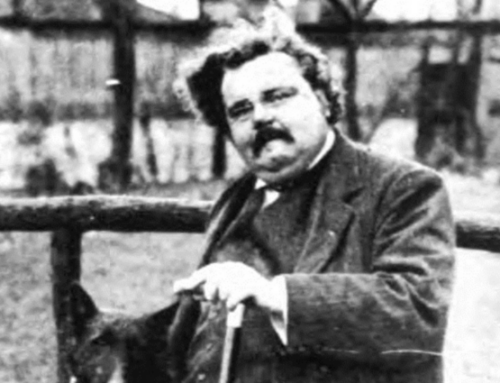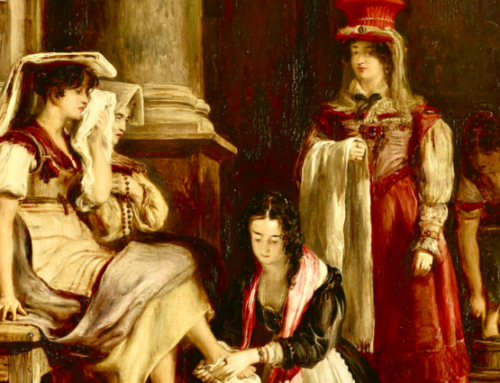To curse God is not to resolve the suffering, but to give in to it, to make despair the beginning and ending of the universe. But God is bigger than the universe and all the suffering that occurs within it. In the end, all will be set to rights when the one who condemns becomes the one who saves.
Author’s Introduction: Imagine if Homer, Virgil, Dante, Chaucer, and the other great poets of ancient Greece, Rome, and the Middle Ages had been given the gift, not only to peer into the twenty-first century, but to correspond with us who live in that most confusing and rudderless of centuries. Had it been in their power to do both of those things, what might they say to us? How would they advise us to live our lives? What wisdom from their experience and from their timeless poems might they choose to pass down to us?
Job: On Suffering
 Can there be any sorrow like unto my sorrow?
Can there be any sorrow like unto my sorrow?
One day I was happy and prosperous: surrounded by a loving family, loyal servants, fertile cattle, and an abundant and prosperous land. And then, as if in a dream, it was all taken from me. Even my own health was stripped away. Sores covered my body, until the only relief I could find was to scratch at them with broken shards of pottery. Sprawled in the dust, forsaken and alone, I could think only of death.
I knew I had done nothing to merit this sudden change of fortune: that I had no more been an evil husband or father than I had been a merciless master of men. I had paid my duties to the Lord and lived in peace with my neighbors. And yet, catastrophe fell upon me even so.
For a time, I found solace when three of my friends came and sat silently behind me, sharing in my suffering and despair. But then, after a time, they began to speak, and their words only multiplied my sorrows.
#
The so-called wise men of my age are no different than the self-appointed sages of your own. They all think that they can explain things away, that every effect can be traced back to one single cause. They have no room for ambiguity, for mystery, for conundrums that refuse to be easily solved.
My “friends” talked and talked and talked, but they never got beyond accusing me for my misfortunes. Oh, they embodied their pious speeches in pretty words and clever metaphors, but their speeches all said the same thing: “you brought your suffering upon yourself, Job; you offended God and betrayed your neighbor, and that is why God has punished you and brought you to this state.”
Maybe it gave them a sense of power and security. Maybe they thought that if they could link my sufferings to a specific crime, then all they would need to do to escape their own potential sufferings would be to avoid that crime. Blame the victim. Every age does it: mine just as much as yours.
But things are not that simple.
Look around you, my friends of the future, and see how often good things come to the wicked while the righteous die young. Those who dishonor God and treat their neighbors with treachery are blessed with wealth, power, and long life; far from feeling the rod of heaven, they pass down all they have acquired to their offspring. Meanwhile, the one who has faithfully served both God and neighbor falls into ruin.
There is no formula for figuring out suffering. No one can say with certainty that this sin caused that punishment. And, usually, those who think they can know very little about the God they claim to serve.
Oh, God is a righteous God who punishes those who break his laws. But that part of God does not define the whole of him. My “friends” only understood the wrath, and that barely. For God’s holiness is something far other than punishment to fit the crime.
What they do not know, they who would explain away my suffering, is that God is not only more removed and inscrutable than they imagine but closer and more approachable than they dream. We may be miserable mortals whose life is no more than a breath, but we can dare to present our case before the immortal, almighty God.
We suffer and die, but we have an advocate in heaven. I know that my redeemer lives and that I will stand before him on the last day. There is darkness all around me, but God dwells in the darkness even as he does in the light.
That is why I can say with boldness and faith that though God slay me, I will yet present my case before him and seek his deliverance. There is life and truth beyond the suffering that seems so suffocating, so all-consuming. God is my judge, but he is also my advocate, my slayer as well as my redeemer.
Do you understand what I am saying to you, you who live in a future that is so sure of itself, so convinced of its wisdom and clarity of vision? Suffering cannot be fully grasped, for God himself is beyond our reckoning. Still, he beckons us to come.
Oh, my friends, I fear that I have spoken out of turn and claimed knowledge of a wisdom that is far too wonderful for me. Even as I wrote down the last paragraph, that which I have so longed for, so called out for in the night, occurred. God appeared to me out of the whirlwind and answered my plea.
He did not say what I had hoped he would. He gave me no simple answers, but presented himself instead. Himself in all his power and majesty. Himself the Creator of all things, from the most humble to the most sublime.
He let me see that I cannot hope to grasp his ways when I cannot even understand the things he has created. He let me see further that his justice transcends my own, that I cannot judge his treatment of the wicked and the proud when I myself am powerless to deal with them.
But he also said that I, unlike my “friends,” spoke what was right about him. So the mystery remains, but it is a mystery that cannot be separated from the nature of God. I can trust God and his ways, even though they are beyond my comprehension.
And I can be assured that I was not wrong to seek my day in court, to call out for an advocate and a redeemer. The divine court exists, and it is God himself who will advocate on our behalf against his own wrath.
In the midst of my complaints, I did one thing well. Though I maintained my innocence, I yet refused to curse God and die, as I was bid to do by one who claimed to love me. To curse God is not to resolve the suffering, but to give in to it, to make despair the beginning and ending of the universe.
But God is bigger than the universe and all the suffering that occurs within it. In the end, all will be set to rights when the one who condemns becomes the one who saves.
—Job
The Imaginative Conservative applies the principle of appreciation to the discussion of culture and politics—we approach dialogue with magnanimity rather than with mere civility. Will you help us remain a refreshing oasis in the increasingly contentious arena of modern discourse? Please consider donating now.
Editor’s Note: The featured image is “Job and His Friends” (1869) by Ilya Repin (1844-1930), courtesy of Wikimedia Commons.







Leave A Comment